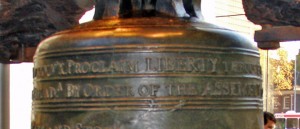The Bible teaches us alot about money and making good financial decisions. One of my favorite theologians is Greg Brady. 🙂 I learned Latin for the first time on the Brady Bunch: “Caveat emptor” meaning “Let the buyer beware”. I learned some more while watching Robin Williams in Dead Poet’s Society: “Carpe Diem.” We used to say, “Carpet Denim” just for fun. One of the best ways to “seize the day” is to make sure that “the buyer is aware” of the hidden costs of any purchase. Mr Brady tried to explain this to his son Greg in a powerful, tear-jerking episode of the The Brady Bunch.
[bcvideo vid=”918490358001″ pid=”96582452001″ height=”410″ width=”480″]
When it comes time to buy a new car, new house, or any major purchase, here is some practical advice from the Bible and Greg Brady on how to “Caveat Emptor”
1. Get advice from others
Proverbs 15:22 Without counsel, plans go awry, But in the multitude of counselors they are established.
Am I Making This decision Alone or within Community? Think of how many people in your life are making dumb decisions. I bet you can think of many people in your family or your workplace, or your life in general or are doing foolish things. You can see that they shouldn’t “buy that car” or “parent that way” In fact, there are many times that everyone around us can see what we can’t. They have a much more objective view of the landscape. Think of yourself. Aren’t there dumb decisions you’ve made that could’ve been avoided? If you had asked someone you loved for advice, could you have avoided some dangerous paths? Had you asked someone you trusted and knew cared about you before you jumped into that new mortgage payment, wouldn’t they have tried to “talk you out of it” and into a better decision.
In America today, we live in an extremely individualistic society. And we suffer for it. We think we are “more free” to do what we want when we do it on our own. A Godly decision maker restricts his freedom through the “constriction” of other’s input, so he can be MORE free by utlizing the wisdom of the community. We should ask others about our decisions. We should ask others about our financial giving and tithing. We should ask others before we jump into any new financial endeavor.
2. Learn from your mistakes and the mistakes of others.
A wise man and woman seeks wisdom anywhere and everywhere. We look for wisdom. We examine our own past experiences. We hunt for wisdom in the pain of our past and the dead ends of others we know. We pursue the words of Proverbs 4
1 Hear, my children, the instruction of a father,
And give attention to know understanding;
2 For I give you good doctrine:
Do not forsake my law.
3 When I was my father’s son,
Tender and the only one in the sight of my mother,
4 He also taught me, and said to me:
“ Let your heart retain my words;
Keep my commands, and live.
5 Get wisdom! Get understanding!
Do not forget, nor turn away from the words of my mouth.
6 Do not forsake her, and she will preserve you;
Love her, and she will keep you.
For more information, check out www.godonomics.com. If you like this article and others, click “like”, sign up for the RSS feed to the upper right, or order the DVD series/ipad App to the right.

